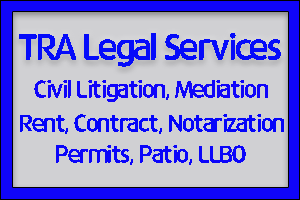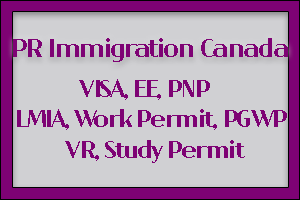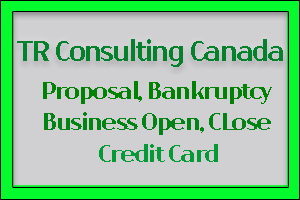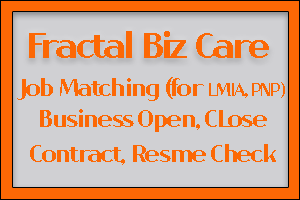Credit recovery, management, credit card application

To recover your credit level
1. Issue a credit card from a Canadian credit company
2. Open a Funds or Loan account
3. Open a credit card
4. Credit card payments are made in full before the scheduled time each month.
5. Payment of utility bills
6. Sign up for your phone

Credit management is the process by which you gain good credit.
The credit function is essentially within a bank or credit management company that manages each individual's credit level to improve income and reduce financial risk.
These functions are often handled by the credit company's collections department.

Equifax and TransUnion Canada
Each individual's credit level is managed, and each bank and credit card company reports each member's credit status to the credit bureau.
The credit status of each bank applicant is checked through the credit bureau.
It is a good idea to periodically check your current credit status through a credit bureau.

TRCC negotiates with banks and credit bureaus on your behalf.
TRCC can help you open a new credit card to repair your credit.
If you are feeling the stress of raising or recovering your credit level, TRCC is here to help.
With TR Consulting Canada, your credit can get better again.
TRCC helps people suffering from heavy debts by resolving their debts through personal rehabilitation or applying for bankruptcy protection, and helps them recover through counseling, education, and materials.
TRCC can help you:
- Consolidated reduction or liquidation of debt
- Interest-free debt repayment
- Stop unreasonable demands or seizure by creditors
- Protecting Debtor's Assets
- Issuance of credit cards for credit recovery and commercial commerce and how to use them
Simple Steps in Debt Relief Process
1. Assess your current credit/financial situation with a trained credit counselor
2. Develop a debt repayment plan based on your current income and budget for the best debt solution.
3. If necessary, negotiate with creditors to reduce debt or eliminate interest.
Credit Recover
Credit scores in Canada range from 300 to a high of 900. Typically, a credit score of 680 can be considered a mid-level score.
Generally, a credit score of 680 or higher is the level at which banks will consider lending you.
In other words, credit below 680 makes it difficult to get a new loan, car loan, or lease.
In North America, each credit card account you own is labeled with a credit level from R1 to R9.
If you always pay the full amount before the scheduled time, you will be shown R1, and if you don't pay at all, you will be shown R9, which is the worst credit level.
Each credit card company reports your credit level to the credit bureaus every 21 days.
In order to restore your credit level, it is recommended that you take the following steps.
1. Issue credit cards from Canadian credit companies.
2. Open a Funds or any type of loan account.
3. When it is difficult to issue a regular credit card, open a credit card by depositing a certain amount of money.
4. All credit cards you own must be paid in full before the scheduled time each month.
5. Do not delay paying utility bills such as taxes, electricity bills, gas taxes, etc.
6. Sign up for a mobile phone.
Credit Management
Credit management is the process by which you gain good credit. The credit function is essentially within a bank or credit management company that manages each individual's credit level to improve income and reduce financial risk. These functions are often handled by the credit company's collections department.
Tips for maintaining good credit:
1. Open a credit card. It will improve your credit score.
2. Always keep your credit card balance low and make payments on time rather than delaying them.
3. Your credit card score will not suddenly increase in a short period of time. It requires ongoing time and effort.
4. Always try to reduce the total amount of debt on any credit cards you own and try to increase your available credit limit.
5. The higher your credit limit, the higher your credit score.
6. Typically, credit scores are updated every 21 days. If possible, make your payment before the payment due date.
7. Check your credit score/status with a credit bureau regularly, at least once a year. If you notice any problems with your credit, or if it shows unused credit, please contact TRCC.
8. Credit cards in joint names with family members affect the credit scores of both members of the family. If your spouse has bad credit, that bad credit affects you as well.
9. When using a credit card, if your card is declined or you receive a message that your limit is insufficient, contact your credit card company immediately. It is best to fix it as soon as possible.
10. Always control your budget. Always keep your spending consistent. Always try to avoid overspending.
11. Always pay your bills on time. Be especially careful when it comes to debt. Paying overtime will be reported to the credit bureaus and will negatively affect your credit.
12. Each month, it's a good idea to pay more than the minimum or pay in full.
Credit Bureau
There are two major credit bureaus in Canada: Equifax and TransUnion Canada.
The credit bureau manages each individual's credit level, and each bank and credit card company reports each member's credit status to the credit bureau at regular intervals.
Additionally, when applying for a mortgage, bank loan, car loan, etc., each company checks the applicant's credit status through a credit bureau.
It is a good idea to periodically check your current credit status through a credit bureau.
TRCC negotiates with banks and credit bureaus on your behalf.
TRCC can help you open a new credit card to repair your credit after personal rehabilitation or bankruptcy.
If you are feeling the stress of raising or recovering your credit level, TRCC is here to help.
After meeting TR Consulting Canada, you can smile again.
Tel: 647-674-1031
Email: trconsultingcanada@gmail.com






























